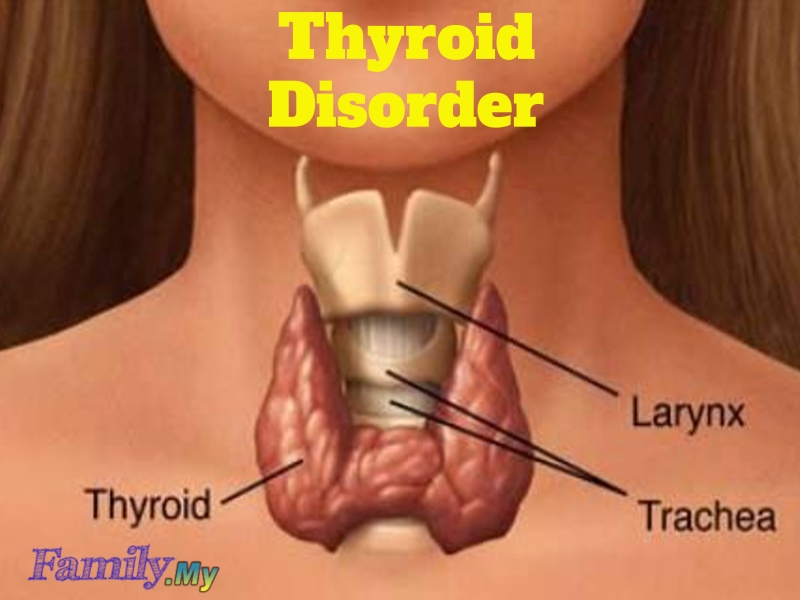A gland in your neck which is shaped like a butterfly is your thyroid. Located above your collarbone, the thyroid is involved in the making of hormones for your body as one of the endocrine glands which is involved in processes like burning of calories in your body and the heart beat rate which are all part of your body’s metabolism system. A lot of people are not aware that they have thyroid disorders that could be minor conditions while there are some which are a lot more serious like thyroid cancer.
Prevalence
Thyroid problems can occur to anyone especially adults. However, it can happen to children as well. There are a few types of diseases related to thyroid disorders. This include goiter which is when the thyroid gland is enlarged. Meanwhile, hyperthyroidism is a common disease among women where the thyroid gland is not able to produce enough thyroid hormones for the body. On the other end, if your thyroid gland makes too much hormones, you will get hyperthyroidism. If there are lumps in your thyroid, it means you could have thyroid nodules while thyroiditis is when there is a swelling in your thyroid which could be quite serious and if not treated and cured could lead to cancer.
Prevention
One of the influencing factors that can cause thyroid disorders is iodine deficiency. As such, it would be imperative that you ensure you have enough iodine in your regular diet to prevent this condition from occurring. Besides that, there are not many ways to prevent you from getting any sort of thyroid disorder as it can happen quite naturally. While salt can be a good source of iodine, the regular diet in Asian food can be quite sufficient. However, consuming too much salt could lead to high blood pressure which means you should take this in moderation.
Diagnosis
The best method to treat thyroid disorders is to first check with your doctor or family physician. Your doctor will need to take into consideration how serious your condition is, your age and your overall health record before deciding. If you are found to have hyper or hypothyroidism, then your doctor will need to re-balance your hormones according to your body’s needs. This could include radioiodine therapy, medications and even surgery if needed. In certain types of thyroid disorders, you might need to have part of all the thyroid gland removed.
Symptoms
You will know that you have a thyroid disorder if you start experiencing symptoms like lack of energy throughout the day and a constant feeling of fatigue. Constipation meanwhile is quite commonly liked to thyroid disorders but if you start gaining weight although having a loss of appetite all the time, then you could be having this condition. Other common symptoms of thyroid disorders include being sensitive to cold temperatures suddenly, hair loss, muscle cramps and even depression which could all lead to this condition.
One of the ways to check that you have a thyroid problem is to check your tongue. Your tongue can tell you about how efficient is your digestive tract’s function. In fact, it is the only part in your body which has a direct link with your stomach and digestive system. You need to find if there are any changes in your tongue’s properties. This includes the surface, size, color and others.
If it is red or beefy, it means you are lacking in Vitamin B12, selenium, iron and zinc, which are all linked to your thyroid. You will need to improve your gut function because your body is unable to absorb the minerals and nutrients.
Specialists
Your family physician will be the best person to advise you on what you should do if you have any type of thyroid disorder. In fact, the doctor will be able to diagnose your condition and explain to you the seriousness of the situation and if you need any further examination. If you need a stronger second opinion, you might be referred to a specialist in the treating of hormone imbalances. This type of doctor is known as an endocrinologist who has been trained in these areas. Besides that, the endocrinologist is able to help to restore your hormone levels to its balanced level. These specialists will be able to advise you on what your next course of actions should be while they are trained in treating patients with diabetes mellitus as well.
Medication
If your doctor finds that you have any form of thyroid disorder, you might have to take beta blockers which can help to relieve the symptoms like heartbeat which is too fast while you could be prescribed with antithyroid medicines which is used to suppress the gland which is overactive. This type of drug could sometimes have side effects so you must take it in moderation. Meanwhile, your doctor could prescribe you with radioiodine which can be taken orally to reduce the production of hormones so that your body do not overproduce.
Home Remedies
There are several home remedies that you can practice to relieve thyroid problems. You should increase your intake of foods with vitamin A which can be found in yellow vegetables as well as in carrots. Besides that, dairy foods like eggs and green, leafy vegetables can provide your body with this nutrient as well. Apple cider vinegar meanwhile can help to help in detoxification and restore the acid alkaline balance in your body. Where possible, you should take coconut oil that helps in thyroid functions in your body. Fish oil, which is rich with omega-3 fatty acids can help to strengthen your immune system and fight inflammation while vitamin D can help to lower your risk of thyroid disorders.

